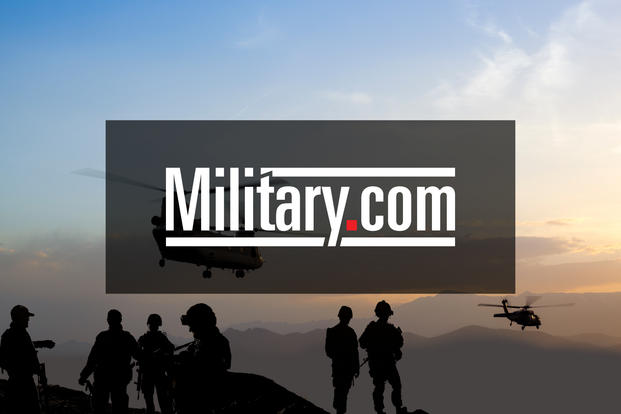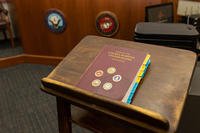Dion Edon Jr. is a combat veteran who deployed in support of Operations Enduring Freedom and Inherent Resolve. He currently works as a DoD civilian Marine supporting the Fleet Marine Forces.
On Aug. 27, 2018, Google announced it was launching a tool that would allow transitioning service members to type in "Jobs For Veterans" followed by their military job code. The service would then return a list of civilian occupations that require similar skills to their military jobs.
One of the program managers stated the aim was to address the fact that there "isn't a common language that helps recruiters match a veteran's experience with the need for their skills and leadership in civilian jobs."
An honorable task, but also a monumental one considering my career. I joined the Corps as an infantry rifleman (primary military occupational specialty 0311) in 2008, did multiple combat deployments with Echo Company, 2nd Battalion, 6th Marines, as the company-level intelligence chief, then was sent to the United States Army Special Operations Command's, Special Warfare Center and School, to be trained as what is now called a psychological operations noncommissioned officer (PSYOP NCO, free MOS 0521).
I've also been trained as an information operations specialist (MOS 0551) and was the first Marine to graduate the Army's 29E Electronic Warfare course. I have been on operational deployments where I used those skills. Currently, I am employed as a Defense Department civilian conducting information operations research for the Marine Corps. It's a challenge for me to sum up my career. So Google's algorithms, which are relying on a military job description with no context about the individual, were sure to have a devil of a time -- and they did.
The first glaring issue is the vast gulf between the "relevant jobs" for the same occupational specialty across two services. For example, for Marine Psyop, out of the top 10 relevant jobs in my area, five are as an intelligence analyst (OK, I can see that) and the other five are as an interpreter for the area's public schools (whiskey tango foxtrot??).
However, the top 10 jobs for Army Psyop (37F) are all marketing jobs, which, in my expert opinion, is a perfect fit for veterans who have experience analyzing foreign cultures and developing messages and actions to convince them to support U.S. objectives.
The problem is the quality of the military job descriptions and skills on which the tool's ontology is based. Without career context, the amazing variability of the individual is lost. But this is actually the least concerning issue with the job search tool.
Looking at the relevant jobs for 0311, the Marine Corps’ infantry rifleman Military Occupational Specialty, it almost reads as the punch line for a joke. Seven out of the top 10 jobs were security guard positions; two others were private investigator roles. But this doesn't match up with the reality of how well my fellow grunts are succeeding in high-paying, demanding, and rewarding industries in a diverse array of fields.
Looking quickly through a squad's worth of friends who have transitioned, I found a strength and conditioning coach for the University of Alabama (Roll Tide!); staff recruiters for industrial technology firms; and someone who became an assistant yard manager at an international port overseas within a year of transitioning and is now a port captain. Two Marines are supervisors at the largest abatement firm in the U.S. After hiring the first Marine, company officials were ecstatic about getting more, because they saw something in their service that is far more valuable than a job description -- the character of leaders.
For transitioning service members and civilian employers looking to understand what honorable military service can bring to their organizations, the first truth to learn is that skills are a dime a dozen. Recently, members of 2nd Battalion, 6th Marines, with no direction from higher up, networked a swarm of drones together to make high-resolution 3D photogrammetry of their training ranges, uploaded that data into a video game and, in their spare time, practiced running those ranges.
Skills can be learned, but leadership must be cultivated. America, you'll be happy to find that on the whole, you'll be getting a young man or woman who has had some of the best leadership training this country can offer. So until Google's service can capture the "je ne sais quoi" of the all-volunteer force, I've got to rate it a 6.5/10.
Tough standard, I know, but the men and women who comprise our force have seen tougher.
-- The opinions expressed in this op-ed are those of the author and do not necessarily reflect the views of Military.com. If you would like to submit your own commentary, please send your article to opinions@military.com for consideration.














